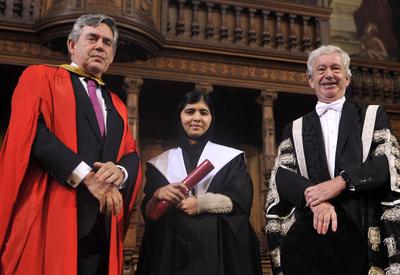Their voices grew stronger after the Mumbai attacks of 26/11 and other unfortunate incidents, such as skirmishes across the Line of Control.
The other group is made up of elites with links across the border. These people developed friendly relationships with Pakistanis during ‘Track II’ events (informal meetings aimed at buildingfriendly relations), or when they studied abroad with well to do Pakistani students in the UK or the United States. Those belonging to the pre-partition generation have also influenced mindsets, though they have been at the fringes and their voices are fading away.
The argument of the second group is that India should reach out to Pakistani liberals who support cordial ties with India — and who have earned the wrath of the Pakistani establishment for their dovish stance.
The belief that engaging with Pakistan is a pointless exercise is an extreme position and successive Indian governments have made overtures to Islamabad. India’s policy has never been driven by magnanimity or dreams of utopia, but the government understands the realpolitik: India cannot grow in an unstable neighbourhood.
So India should try to improve relations with Pakistan, but not for the reasons usually given by Indian liberals.Theirvision of Pakistan is very limited — the Pakistani they know is comfortable in English, belongs to the upper crust of Pakistani society, is appreciative of Indian art and culture, likes visiting India and generally lives a western lifestyle.
The majority of Pakistani people are nothing like this. Pakistan, like India, is home to an aspirational middle class, which may not speak the Queen’s English but is keen to prosper economically. This middle class consists of Urdu journalists, academics, lawyers, bankers and has grown significantly over the last decade.
For these people, détente with India is not about reuniting with like-minded people, it is about economic progress. Unlike the Pakistani elite the middle class does not have overseas citizenships or residences. So a middle-class Pakistani yearns for better ties with India because it is cheaper to import medicines from India, and because a holiday to India is much cheaper than going elsewhere.
And yet, India has made little effort to reach this middle class, whose strength is rising with the gradual strengthening of Pakistani democracy.
Educational exchanges are generally between the elite institutions of Lahore and New Delhi. Seldom are research and educational institutions in interior Punjab and Sindh linked to similar institutions in the smaller towns of India. When I visited Pakistan recently, students complained that they are not allowed to meet students from across the border, just because the two governments have problems.
Peace initiatives like Aman Ki Asha have made serious attempts to connect individuals from outside big cities, buta stringent visa regime makes it virtually impossible for ordinary, middle-class Pakistanis and Indians to interact freely.
This is where the hawks in India — both in the establishment and outside — should share a large portion of the blame. The future generation of Pakistanis have nothing to do with the Pakistan army or religious hardliners — they are India’s potential ally.But India pushes this element away by denying the existence of any sane elements in Pakistan, and by opposing engagement and the liberalisation of visa regimes.
Rather than making India strong, such a myopic approach only strengthens India’s opponents in Pakistan. India’s hawks need to realise that the common citizen of Pakistan is not responsible for the follies of their government. Those in favour of a good relationship with Pakistan need to rethink their approach and make a broader argument for better ties.
India does need to remain strong and oppose anti-Indian forces in Pakistan, but it should not ignore a new, potentially friendly constituency, which exists outside the posh addresses of Islamabad, Lahore and Karachi.
It is important that people of both countries form their opinions through interactions and exchanges — not through propaganda.
Tridivesh Singh Maini is a New Delhi based columnist and an independent policy analyst.


Very well said Tri. Approaching the middle classes and informing them about the benefits of peace might be a bit tedious but certainly a sure shot way of removing the obstacles towards lasting peace. I enjoyed reading this piece